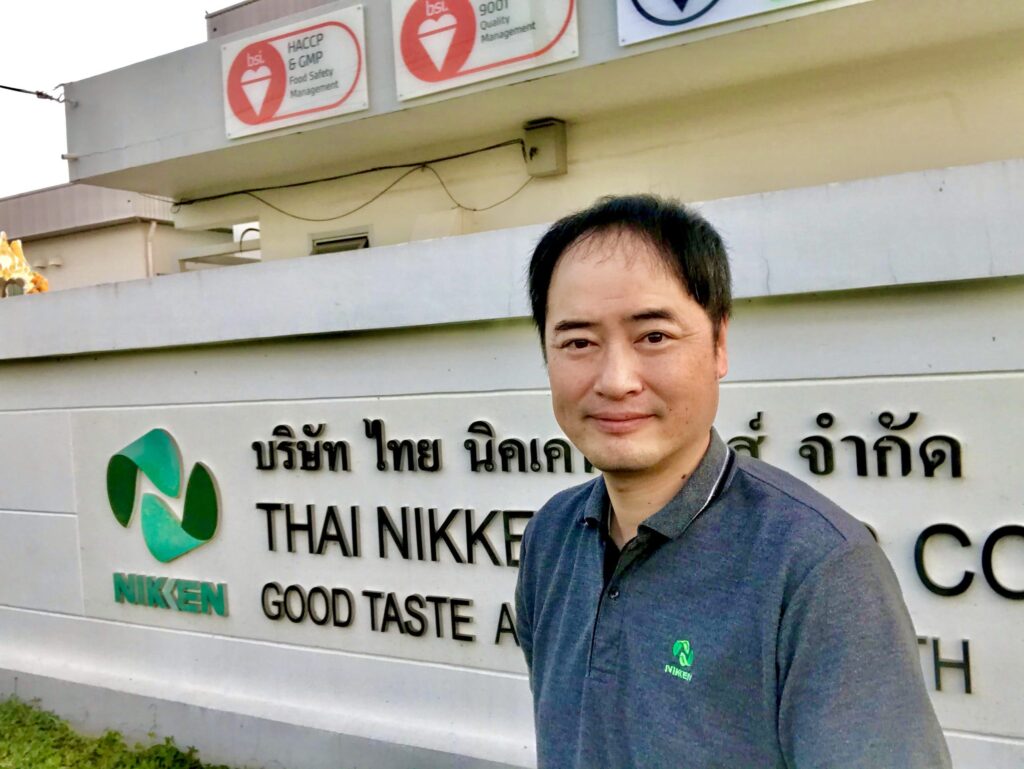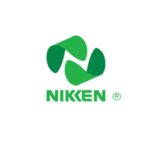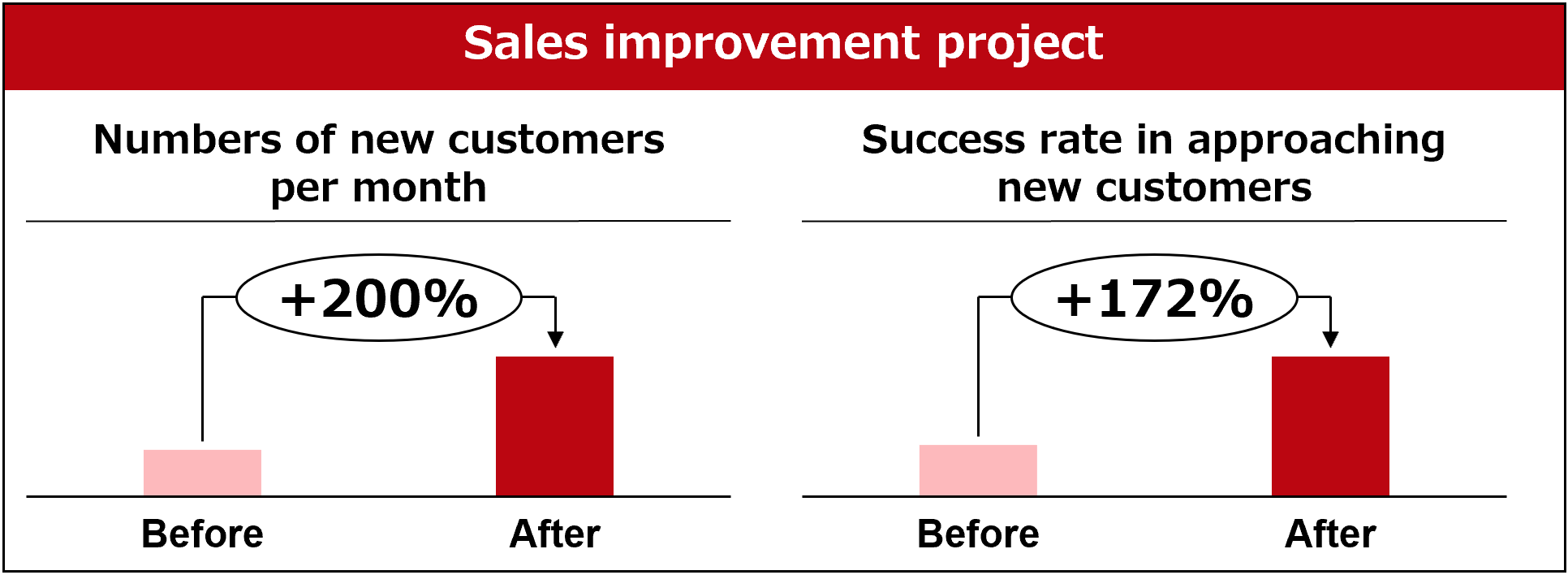A Japanese-affiliated company in Thailand that manufactures and sells natural seasonings, it has been operating in Thailand since 2011, with a manufacturing base in Rayong and a sales base in Bangkok, and is responsible for sales functions to surrounding countries. The company has 40 employees.


Managing Director
of Thai Nikken Food Co., Ltd.

Considering the recent growth of the food market in Thailand and neighboring countries, we have set a mid-term strategy to triple our sales, thereby improving our factory utilization rate and establishing a second manufacturing base in Thailand. In order to achieve this goal, we knew that we needed to triple the number of customers in the next few years. Therefore, we decided to change our sales organization from one that focuses on existing customers to one that proactively seeks to develop new customers.
However, due to cultural and language barriers, I found it very difficult to manage the activities of the sales department within the company. It was difficult for me to grasp the actual situation even when I asked sales staff, “What are your sales activities these days?” For this reason, I wanted to make the actual status of sales activities visible in some way. I wanted to be able to visualize sales activities in a systematic way, and to be able to give positive advice when there was a problem.
For overseas sales activities, it was not appropriate to utilize the best practice of the Japanese headquarters as they were, and we felt the need to create a system which is suitable for the local market. In Japan, Nikken Food is known by many food companies as a natural seasoning manufacturer with a history of over 50 years, but in Thailand, we are not that well known, so we do not progress as far as we do in Japan in developing new customers. This was a big difference between Japan and Thailand.
Also, as I myself have a background in business development, I was not familiar with sales reform, so I decided to seek the opinions of outside experts.
While there are a variety of activities in sales activities, if we can understand what key actions really lead to results and how those actions should be managed, it will be easier to manage sales in the future. We wanted to ask a consulting firm to systemize this point for us.
In my search for a consulting firm, I participated in various seminars to gather information. We consulted with three other firms, but we chose LiB Consulting because we felt that their approach was the most logical and that they had a proven track record in the sales field.
This approach was the exact opposite of the culture of trying to do something with mentalism and perseverance that had originally taken root in our company, so we thought we could expect significant improvements. Another reason was that the Thai consultant who was to be in charge seemed to be an excellent person, having graduated from a Japanese university and holding a doctorate degree.
What I felt was different from other companies was that LiB’s proposal also considered the results after the project. They even considered the possibility of applying the project not only to existing sales channels, but also to other channels and in other countries. We started the project looking forward to such effects.
Rather than imposing the Japanese way of doing things, the Thai consultant took the lead in analyzing, determining policies, and supporting implementation. In particular, I appreciated the frequent communication between the consultant and the sales staff to enhance their ability to implement the plan.
I was impressed by the fact that such daily communication raised the spirits of the Thai sales staff and they began to actively implement the plan.
In addition, LiB was focused with results and even supported us with topics outside of our scope if necessary. When our members came up with new ideas such as exhibiting at a food expo or planning a seminar for R&D, they supported us flexibly although it was not in our original scope.
First of all, they created a high-quality system and tools in the sales process. During the activity period, the behavioral productivity for new customers has increased by about 3 times, and we can expect great growth even with the impact of COVID-19 and other factors. Even after the project ends, I believe that Thai salespeople will be able to implement this system and make it a habit.
In addition, since the turnover rate is higher in Thailand than in Japan, we aimed to reduce dependency on individuals and achieve a state where productivity can be increased by the system, so I think we were able to build a system where even new employees can achieve results early. In the future, I believe that we will be able to immediately implement best practices when new employees join the company.
The main project members were sales staff who had just joined with the company recently. As a result, I felt that they were moving forward positively, with an attitude of trying out new systems without being dragged down by past methods.
In addition, in the latter half of the project, cooperation among team members increased, and they were able to proactively come up with new proposals on their own.
I think the thing that impressed me the most was the speed of execution. I felt that the response and PDCA cycle was very fast.
For example, when we had a project meeting, the minutes of the meeting in Thai and English were sent to us that night. I was also impressed by the fact that they have many examples of other companies in different industries, so they were able to adapt to our situation by referring to such examples.
Also, when COVID-19 started to affect our sales activities, they proactively shifted to remote communication and suggested a sales style with online meetings.
I would like to use this output for my agency sales in overseas (Asian countries) markets. In other countries, I think it is very important to manage sales without visiting the distributors, including those of our business partners, since we cannot make all sales visits as we do in Thailand.
We would like to apply our current sales system and adapt it to the situation in each country to maximize its use.
Thank you for your interest.
Please fill in some important information and we will be in touch.